
The Political Bureau of the Central Committee of the CPC held a meeting on Dec. 9 to analyze the economic work in 2017. It is stressed in the meeting that continuing the commitment to the general principle of making progress while working to keep performance stable will be of great importance to guiding economic work in 2017. Under the precondition of maintaining social stability, breakthroughs must be achieved in critical areas.
As to policy direction in 2017, experts indicated that the meeting sends important signal about boosting real economy, meaning that a slew of policies and measures will be rolled out in important industries and areas next year. For real estate market, long-acting mechanisms like real estate tax, new-type urbanization and etc. will be pushed forward; for the construction of new system for open economy, policies for attracting foreign investment in the new era, further expanding the opening of the service industry and etc. will all be put into practice next year.
Progress: supply-side structural reform to deepen in 2017
It is proposed in the meeting to make more efforts in “cutting overcapacity and excess inventory, deleveraging, reducing costs, and strengthening points of weakness” and strive for substantial progress of in the five tasks. Active efforts should be made in advancing agricultural supply-side structural reform, boosting real economy, fostering new momentums, moving faster in building market-oriented long-acting mechanism to achieve stable and healthy development of the real estate industry, advancing fundamental and critical reforms in areas like state-owned enterprises (SOEs), fiscal levy, finance and social security, and giving better play to the driving role of economic system reform. Efforts should also be made in advancing the construction of the “Belt and Road”, improving legal system building, improving investment environment, releasing consumption potential, expanding opening areas and actively attracting foreign investment. Various efforts made for improving people’s livelihood should be further continued to maintain social stability.
It is proposed in the meeting to boost real economy and foster new momentums. Experts pointed out that under economic downward pressure, “capital flow from real economy into fictitious economy” brings more challenges to the development of real economy. The meeting sends important signal about boosting industrial development.
Guo Lei, chief macro-economy analyst at GF Securities, remarked that only more active fiscal policies can drive real economic growth though infrastructure and taxation lever. Policy guidance over financial products like wealth management products, note, universal life insurance, Internet-based finance and bonds are rolled out since middle 2016. Policies guiding deleveraging in the finance industry might be continued. Boosting real economy means that a series of policies and measures will be rolled out in important industries and areas.
Supply-side structural reform is the main part of China’s economic work now. Experts indicated that the supply-side structural reform will be “deepened” in 2017. Wang Yiming, deputy director of the development research center of the State Council, believed that to achieve substantial progress in the aforesaid five tasks, efforts must be combined with reforms in relevant areas, and the systematicness and coordination of reforms must be strengthened. De-capacity must be combined with the deepening of SOEs reform; the efforts made in cutting excess inventory should focus on housing inventory in third-tier and fourth-tier cities; deleveraging should be advanced step by step; the efforts made in reducing cost should focus on reducing institutional transaction cost; weakness in “software” area should be improved.
The meeting also proposes to actively advance the agricultural supply-side structural reform. Experts indicated that focus is laid on structural adjustment since 2016. Progress is made by various places in advancing the agricultural supply-side structural reform; agricultural structure is further improved; the competitiveness of agricultural quality and effectiveness is enhanced. The agricultural reform in 2017 will center around improving storage policies, adjusting plantation structure, advancing scale operation, developing rural infrastructure and etc.
Real estate market: establishing long-acting mechanism to achieve stable and healthy development of real estate industry
The development of real estate market in 2017 will attract wide attention. It is proposed in the meeting to build market-oriented long-acting mechanism to achieve stable and healthy development of the real estate industry. Experts indicated that long-acting mechanisms like real estate tax, new-type urbanization and etc. will be pushed forward.
Driven by capital leverage, the real estate market experiences a bullish run since 2016. The Annual Report of Development of Housing Market China 2016-2017, recently released by the Chinese Academy of Social Sciences (CASS), pointed out that overheated housing market is mainly seen in first-tier cities and some second-tier cities. Both the housing price hike and accumulated risks are larger than they were during 2009-2010. The skyrocketing housing price and transaction are magnifying risks in the housing market. The government later takes decisive measures and changes regulation policies, and restrictions over housing loans and purchasing are launched in hot cities in succession.
“Policy will be mainly kept stable.” One industrial insider said that the policy controlling housing price and reducing inventory may be the major policy trend in real estate industry in a longer term.
This judgment is consistent with signal previously revealed by Ren Xingzhou, former head of Market Economy Research Institute of Development Research Center of the State Council. Ren indicated that regulators in housing industry in the future will gradually relief the risk and influence brought by bubble economy. They need to eliminate panic and investment speculation and keep market stable as well.
In terms of policy choice, Ni Pengfei, assistant to the head of National Academy of Economic Strategy, CASS, said that although overheated speculation can be curbed through administrative policy, nidus of housing mechanism is still not removed and investment speculation will definitely come back at any time. Therefore, central government underscored that formulating long-term mechanism is to let governmental department and market participants actively and rationally join in and promote development of housing industry.
Regarding long-term mechanism in real estate market, Ni suggested establishing a system about housing property right, operation, exchange, consumption and distribution, allowing new citizens to rent and purchase affordable houses with support from market and government. Besides, it is suggested to set up competitive housing land system, multi-level and preferential housing financial system and fiscal and taxation system of real estate industry which will mainly consist of holding tax.
In addition, Ni said the positioning of real estate industry should be providing houses to live. So it should speed up establishing system to legalize housing security and legalize housing policy allowing residents to buy affordable houses.
Liberation: policy promoting foreign investment in new period to launch
It is believed by industrial experts that next year construction of new system of China’s open economy will be further promoted, the “Belt and Road Initiative” will be solidly implemented, quality will be more concerned when attracting foreign funds and opening fields centering on service industry will be expanded, which are the priorities.
It is learnt that policy attracting foreign funds and liberation of service industry to be further expanded will be determined in next year. The policy attracting foreign funds will turn from general system of preferences to precision system and will more highlight market-oriented method in investment promotion policy. Service fields including finance, education, elderly care, medical treatment, culture, telecommunication, Internet and commercial logistics are expected to relax restrictions on foreign capital access.
Compared with rapidly growing overseas investment, foreign investment that the country attracts is growing at stable pace. Industrial insider told the journalist that China’s absorbing and utilizing foreign funds has entered a stage with comprehensive commercial cost advantage weakened and new advantage developing. The journalist also learnt that in order to adapt to new changes in domestic and foreign environmental, Ministry of Commerce and other relevant ministries are mulling over foreign investment policy for new period. The policy attracting foreign funds will turn from general system of preferences to precision system and will more highlight market-oriented method in investment promotion policy.
Bai Ming, researcher with an institution affiliated with the Ministry of Commerce, pointed out that currently foreign funds are faced with pressures from outflow. One the one hand, with a new round of shift of international industries, low-end capitals are flowing to Southeast Asia and other regions; on the other hand, high-end capitals are flowing back to European countries and America. The US president-elect Trump may cut corporate income tax to 15 percent and levy more taxation on enterprises making overseas investment to facilitate reflow of capital. In his opinion, the utilization of foreign capitals will focus on attracting foreign capitals, keeping capitals and using capitals in the following period. Improving investment environment will be also proceeded in diversified ways. Meanwhile, it will provide foreign capitals and private capitals with a more fair competition environment under legal premise.
Service industry will be the key field of broadening liberation in China in next stage. It is learnt that besides propelling comprehensive pilots of expanding liberation of service industry in Beijing, relevant ministries will also relax restrictions on foreign capital access in finance, education, elderly care, medical treatment, culture, telecommunication, Internet, commercial logistics and other service fields based on negotiations on China-US investment agreement.
Translated by Jennifer Lu & Vanessa Chen
















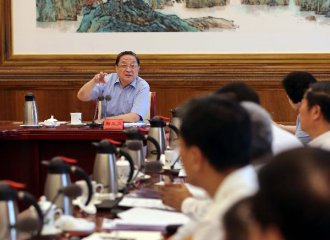
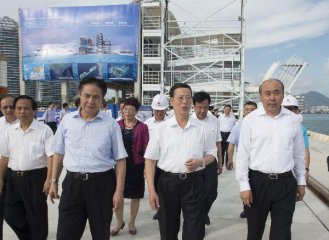
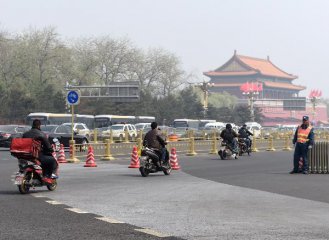
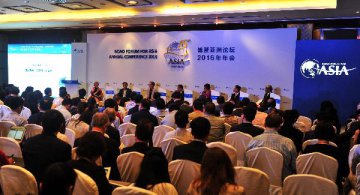
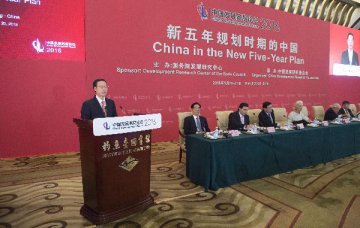
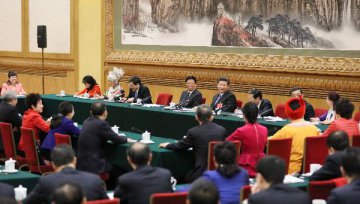


Latest comments